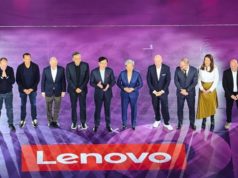
Now that Dell’s $60 billion acquisition of EMC is complete, the new technology behemoth is making it clear where its future ambitions lie, and they very much lie in the hybrid cloud. The merger has created an entity with an enormously broad portfolio of hybrid cloud services to offer enterprise clients, including software-defined data center, converged infrastructure, platform-as-a-service, data analytics, mobility and cybersecurity.
“We see huge opportunity in hybrid cloud with VMware and Virtustream, in converged and hyper-converged infrastructure with VMware, in platform-as-a-service with Pivotal and VMware, and finally in cybersecurity with RSA and SecureWorks,” David Goulden, Dell EMC’s president, wrote in a blog post Wednesday following the closing of the deal.
Breaking IT Infrastructure
It’s hard to overstate the massive size of the new company. Dell Technologies — the company’s new name — now consists of more than 140,000 employees working on literally hundreds of products. That’s enough resources for the company to pursue whatever strategy it might want to in the market.
The company is pursuing a hybrid cloud strategy due to opportunities being driven by a revolution in the way businesses use and interact with their data centers, according to Jeremy Burton, Dell’s chief marketing office. “The requirements driven by digital — 1000x more data created by 1000x more users — will break traditional IT infrastructure,” Burton wrote in a separate blog post.
Adopting a hybrid cloud strategy is the only option for companies that want to enable their data centers to take advantage of modern IT infrastructure technologies such as flash, scale-out, software-defined and cloud-enabled technologies, while at the same time hardening their systems against attacks.
“Dell EMC, Virtustream, and VMware are critical to implementing a hybrid cloud strategy,” Burton said. “Hybrid cloud’s run traditional applications faster and more efficiently, freeing up the funds (up to 24 [percent] in survey’s we’ve ran) through which to lay the foundation for new, cloud-native applications that will enable digital business.”
Not Going Toe-to-Toe with AWS
By pursuing its own hybrid cloud strategy, Dell avoids going toe-to-toe with Amazon Web Services, the current heavyweight in the sector, or trying to muscle in on Microsoft Azure or Google. Pivotal Cloud Foundry, one of the services that Goulden listed in his blog post allows companies to build their own applications and run them across various cloud service providers.
VMware, another company that joins Dell as an EMC subsidiary, has also made this pitch more explicit recently. The company has traditionally focused more on helping companies run workloads on their own data centers. However, last week VMware said that it would now provide services to help clients run workloads across internal servers, servers managed by VMware, or cloud servers managed by the big public cloud providers.
While the pure cloud space is already pretty crowded, Dell seems to be betting that businesses will continue to run some of their workloads in-house for security reasons, or choose to work with multiple cloud providers. Ensuring all those public and private clouds play nice with each other is the role that Dell apparently wants to fulfill.
“Everything in the data center must be self-service and frictionless, making the environment both more efficient and more reliable,” Goulden said. “This turns existing IT environments into an “IT-as-a-service” platform, providing a public cloud-like experience inside the data center.”







